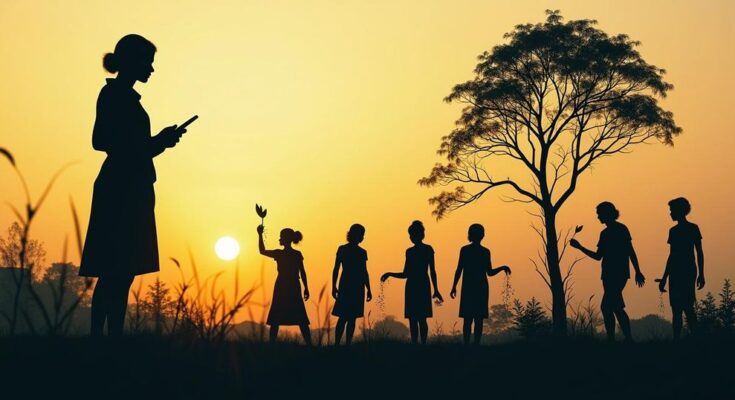Environment Adviser Syeda Rizwana Hasan addressed the disproportionate impact of climate change on women in Bangladesh during the “Annual Community of Practice Network Convention 2024”. She underscored the unique struggles of women in regions affected by water scarcity, particularly in Khulna. Rizwana called out developed nations for failing to deliver promised support and emphasized the importance of regional cooperation. The event recognized outstanding women-led climate adaptation initiatives, showcasing women’s crucial role in addressing climate challenges.
On October 7, 2024, during the “Annual Community of Practice Network Convention 2024” held at the BRAC Centre Inn in Dhaka, Environment Adviser Syeda Rizwana Hasan articulated the profound impact of climate change on women, especially those fulfilling the role of primary caregivers in Bangladesh. This demographic is significantly affected by natural disasters, as they face heightened challenges in securing daily necessities for their families amid such crises. Rizwana provided insights into the unique hardships faced by women in regions like Khulna, where access to clean water is critically limited. As a result, many women are forced to resort to birth control pills to manage menstruation, citing that “During pregnancy, many women suffer from high blood pressure due to the saline water.” Despite the apparent abundance of water, the lack of safe drinking options remains a pressing issue. The convention, supported by UN Women, convened experts and activists dedicated to addressing climate adaptation and promoting gender equality. Rizwana emphasized the need for regional cooperation to effectively address climate change challenges, stating that the forthcoming international discussions should focus on supporting vulnerable nations. She criticized developed countries for their inadequate financial contributions, stating, “Developed nations talk big but fail to provide the necessary financial support.” However, she acknowledged Sweden as a notable exception in fulfilling its commitments. Additionally, the event featured the recognition of five outstanding initiatives led by women that focus on climate change adaptation, showcasing the essential role women play in combating the effects of climate change.
The relationship between gender and climate change has become a critical area of focus, particularly in developing countries like Bangladesh, where women often face disproportionate challenges. Women are primarily responsible for household food security and sanitation, making them significantly vulnerable to the effects of climate-related disasters. This vulnerability is exacerbated by environmental factors such as lack of access to clean water and healthcare during natural disasters, highlighting the need for gender-sensitive policy measures in climate adaptation strategies.
The address by Syeda Rizwana Hasan during the convention highlighted the urgent need to recognize and address the specific impacts of climate change on women in Bangladesh. It emphasized the necessity of international cooperation, especially from developed nations, to support the most adversely affected regions and to provide the necessary resources to address these challenges. Furthermore, the event underscored the importance of celebrating and supporting women-led initiatives in climate adaptation as a pathway towards resilience and empowerment in facing climate change.
Original Source: asianews.network




